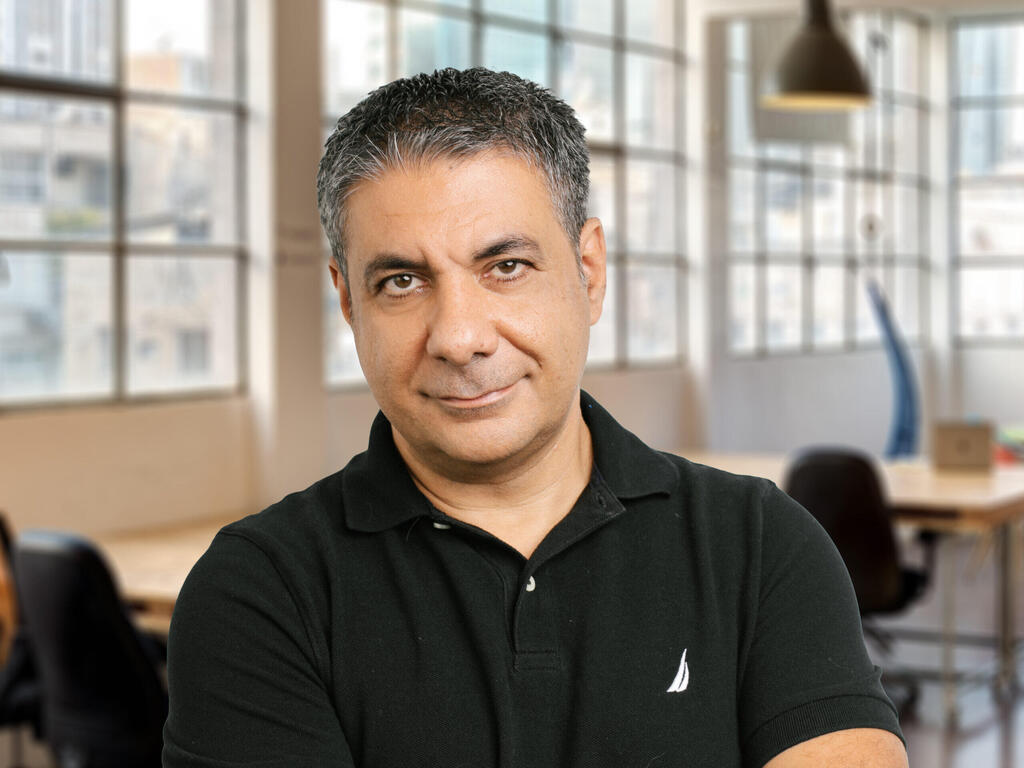
Opinion
How the potential Qualcomm-Intel merger could impact Israel's tech ecosystem
"The potential Qualcomm-Intel merger isn't just a business transaction; it's a catalyst that could redefine Israel's technological narrative," writes Yaniv Golan, General Partner at lool Ventures
Recent discussions about a possible merger between Qualcomm and Intel hold significant implications for Israel's tech ecosystem. While it's uncertain whether this merger will proceed due to potential regulatory hurdles, it's important to consider how such a development could influence Israel's technological landscape.
Back In 2011, I emphasized the importance of "letting a thousand flowers bloom" in Israel's tech industry, advocating for a diverse array of startups rather than focusing on building a single giant corporation. This approach transformed Israel into a vibrant hub where innovation thrives across multiple sectors. However, rapid advancements in AI and generative technologies are reshaping software development, potentially diminishing the competitive edge of software-based innovations alone. This shift necessitates reevaluating where we should direct our entrepreneurial and investment efforts.
Learning from past transformations
Major mergers and acquisitions have historically shaped Israel's tech sector. Intel's acquisition of Mobileye in 2017 propelled Israel to the forefront of autonomous vehicle technology, attracting global investor interest and boosting the entire ecosystem. Similarly, a potential Qualcomm-Intel merger could catalyze advancements in areas like 5G technology, IoT devices, and AI applications, turning theoretical research into practical solutions.
Exploring new frontiers beyond software
While software remains critical, we must look beyond its horizons. Deep tech sectors—such as semiconductor technology, biotechnology, advanced materials, and quantum computing—present unique opportunities. These fields require significant scientific breakthroughs and longer development times but offer enduring impact and substantial economic value. Crucially, they are less susceptible to disruption from AI advancements in software.
Sustaining Israel's leadership through Deep Tech
Deep tech innovations often create foundational shifts in technology and society. Unlike software applications, which AI can now generate or optimize, deep tech requires profound scientific and engineering expertise that's difficult to replicate. Focusing on these areas can ensure Israel maintains its leadership in innovation:
- Complex challenges beyond AI's reach: Developing new semiconductor materials or biotechnology breakthroughs involves intricate processes that AI cannot fully automate, keeping these sectors resilient to rapid commoditization.
- Foundation for AI advancements: Advancements in semiconductor technology directly impact computing power and efficiency, essential for meeting AI's escalating demands.
- Strategic and economic importance: Leading in deep tech offers significant influence over global supply chains, standards, and security, positioning countries as key players in geopolitics and trade.
- Leveraging Israel’s expertise: Israel's strong foundation in scientific research and history of breakthroughs position it to lead in areas demanding deep technical expertise.
Companies like NeoLogic (a lool ventures portfolio company where I serve on the board) exemplify this approach. NeoLogic advances chip design by developing technologies that enhance computing power and energy efficiency—crucial for AI and data processing. Their hardware-level innovation is essential for AI's future growth.
Additionally, Israeli companies are innovating in other deep tech sectors. Chiral Energies uses quantum chemistry to develop materials enhancing electrochemical reactions in fuel cells and batteries. This technology contributes to clean hydrogen production and energy storage, vital for the renewable energy revolution.
Resilience against AI disruption
Focusing on deep tech offers resilience against AI-driven disruption:
- Sustainable impact: Deep tech projects require longer development times and higher investment but lead to transformative innovations less vulnerable to rapid obsolescence.
- Interdisciplinary innovation: Collaboration across scientific disciplines fosters complex problem-solving beyond simple automation.
- High-value employment: Deep tech sectors generate specialized jobs, supporting a knowledgeable workforce and boosting the economy. These roles are less susceptible to automation.
Potential impact of the merger on Israel
A Qualcomm-Intel merger could significantly affect Israel’s tech ecosystem:
- Increased visibility: A high-profile merger would spotlight semiconductor technologies, attracting more investment and talent to Israel.
- Collaboration opportunities: Israeli startups in semiconductor design or clean technologies could find new partnerships with global tech leaders, leading to growth and market access.
- Boosting investment: Focus on deep tech sectors could spur investment in education, research, and startups, reinforcing Israel's leadership in critical technological fields.
Addressing challenges in Deep Tech investment
Opportunities in deep tech come with challenges:
- High capital requirements: Ventures need substantial investment due to expensive equipment and lengthy research phases.
- Longer time to market: Extended development cycles can deter investors seeking quick returns.
To mitigate these challenges:
- Government support: Funding programs, tax incentives, and grants can lower barriers for deep tech startups.
- Public-private partnerships: Collaborations can pool resources and share risks, fostering innovation.
- Dedicated investment funds: Establishing venture capital funds focused on deep tech provides necessary financial backing.
Role of the Israeli government
The government can catalyze growth in these sectors:
- Attract global tech leaders: Implement policies encouraging multinational companies to expand in Israel, especially in semiconductors and biotechnology.
- Invest in R&D: Increase public funding and establish centers of excellence to accelerate breakthroughs.
- Enhance STEM education: Strengthen education to ensure a workforce capable of driving innovation through scholarships and partnerships.
- Support startups: Provide funding and resources, creating incubators and accelerators focused on deep tech.
- Promote international collaboration: Facilitate partnerships to open new markets and exchange knowledge.
Though some initiatives may not align with the current administration’s immediate priorities, long-term thinking and a commitment to innovation are essential for maintaining Israel’s global competitiveness. I remain optimistic that the government will recognize the value of supporting these sectors and take action accordingly.
Cultivating a diverse ecosystem for the future
Reflecting on past insights amid rapid technological changes, adaptability is crucial. Beyond "letting a thousand flowers bloom," it's time to cultivate a diversified landscape—nurturing various types of innovation, symbolized by different plants in an ecosystem. This creates resilience, allowing the tech ecosystem to thrive amid global shifts.
By embracing diversity and focusing on both immediate and long-term innovations, Israel can leverage its strengths and remain at the forefront of global technology leadership.
The potential Qualcomm-Intel merger isn't just a business transaction; it's a catalyst that could redefine Israel's technological narrative. By proactively engaging with the opportunities and challenges it presents, we can elevate Israel's tech ecosystem to new heights.
The author is Yaniv Golan, General Partner at lool Ventures.















